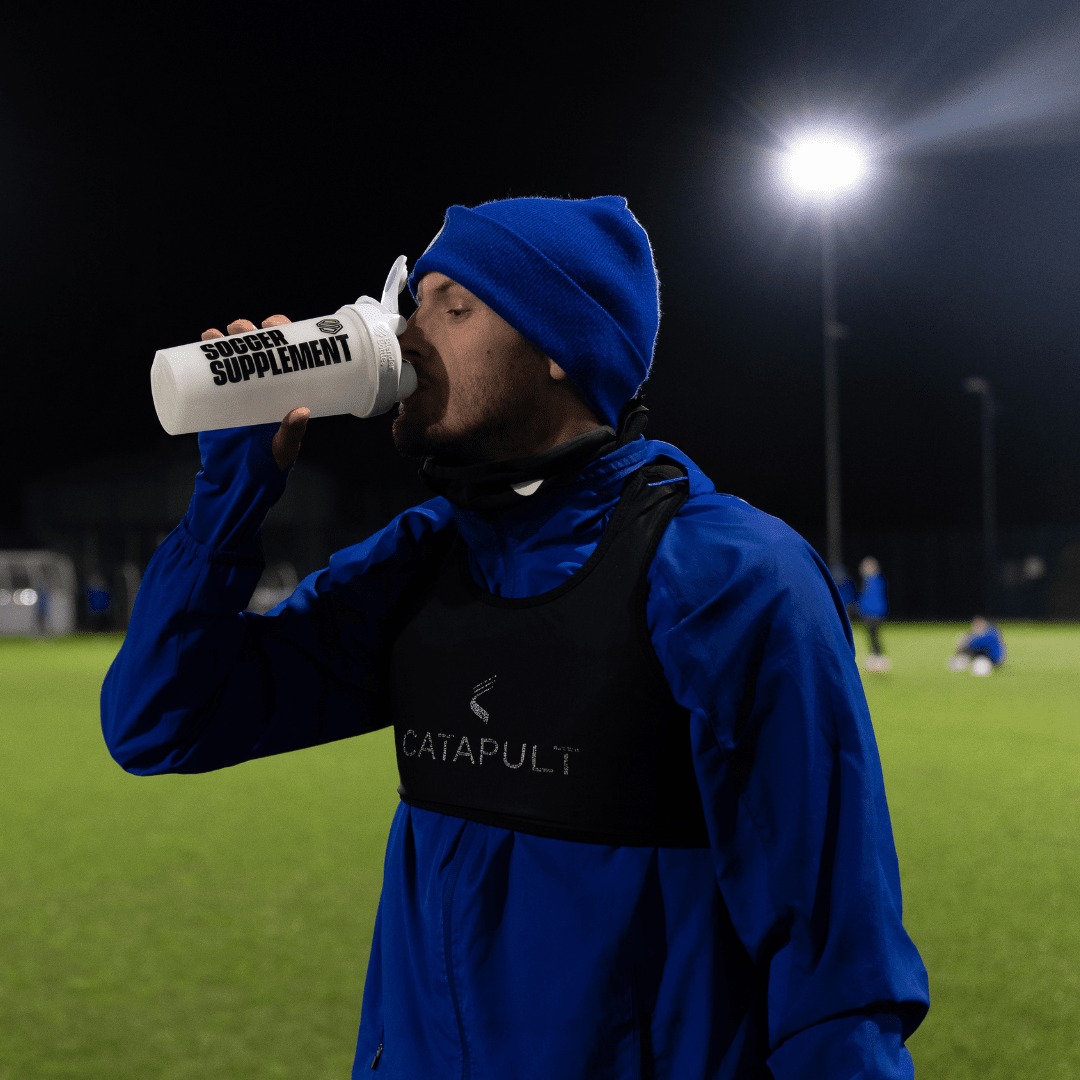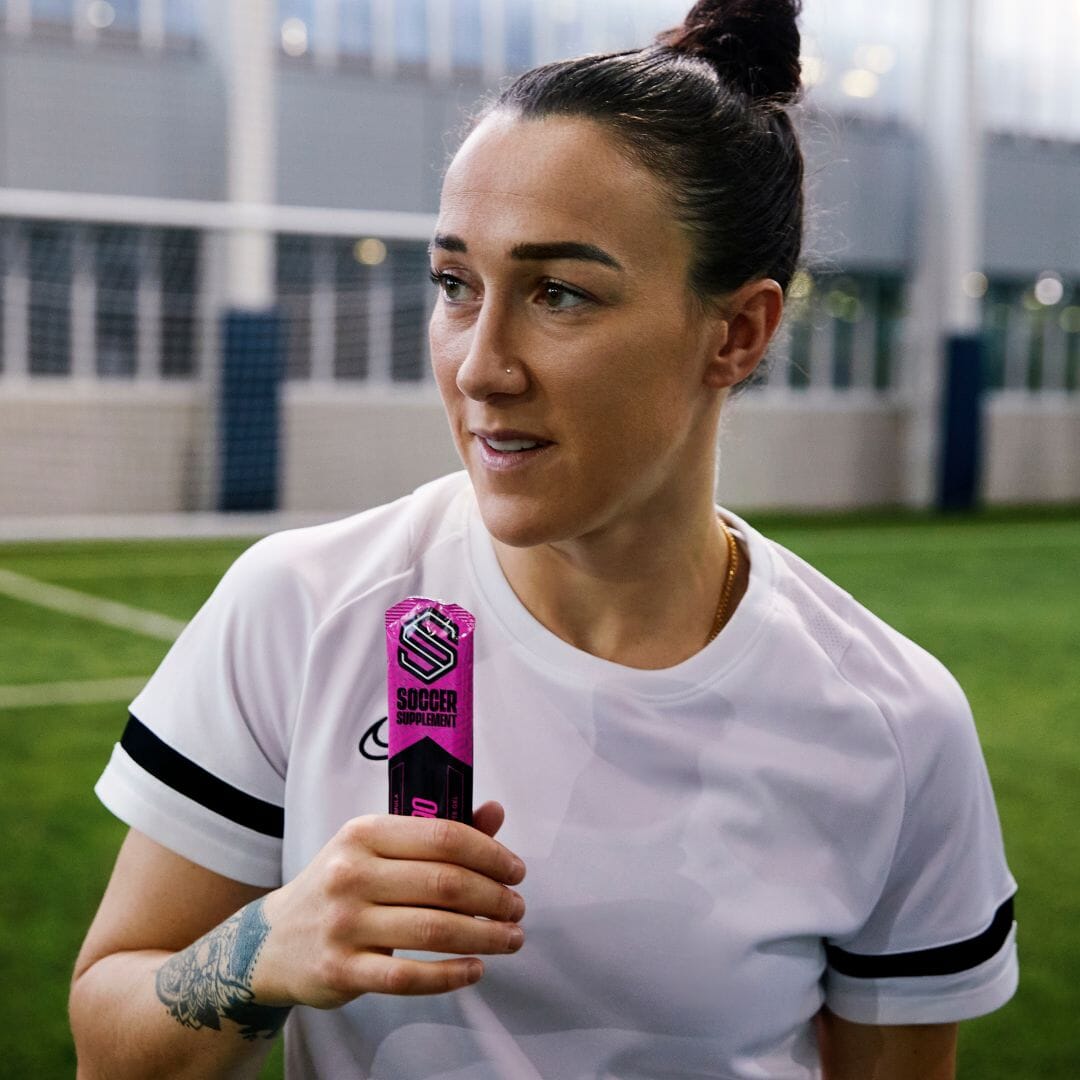WHAT IS BETA-ALANINE?
Beta-alanine is a naturally occurring amino acid.
WHAT DOES IT DO?
Beta-alanine works by increasing levels of carnosine in your muscles which buffers the effects of lactic acid which is released after sprinting in Football. Lactic acid reduces your ability to repeat sprint at top speed.
HOW EFFECTIVE IS IT?
Beta-alanine supplementation has shown to improve the lactic acid buffering by 10%2 and studies have shown significant improvements in the repeat sprint performance.
Sprint times have been shown to improve over both 12 and 30 meters through the use of beta-alanine.
SIDE EFFECTS
A common but harmless side-effect of taking beta-alanine is called paraesthesia which is a tingling on the skin. This is likely to be felt the first time you use Beta-Alanine but it will reduce over time.
BETA-ALANINE + FOCUS90®
Focus90® contains 3g of Beta-Alanine and if you use it twice per week (once at training and once on a match day):
- Carnosine levels in your muscles will increase by up to 60% after a month
- This will improve your repeat sprint over both 12 and 30 meters

References
1. Abe, H. Role of histidine-related compounds as intracellular proton buffering constituents in vertebrate muscle. Biochem. Biokhimii 65, 757–65 (2000).
2. Harris, R. C. et al. The absorption of orally supplied beta-alanine and its effect on muscle carnosine synthesis in human vastus lateralis. Amino Acids 30, 279–89 (2006).
3. Derave, W. et al. beta-Alanine supplementation augments muscle carnosine content and attenuates fatigue during repeated isokinetic contraction bouts in trained sprinters. J. Appl. Physiol. 103, 1736–43 (2007).
4. Hill, C. A. et al. Influence of beta-alanine supplementation on skeletal muscle carnosine concentrations and high intensity cycling capacity. Amino Acids 32, 225–33 (2007).
5. Artioli, G. G., Gualano, B., Smith, A., Stout, J. & Lancha, A. H. Role of beta-alanine supplementation on muscle carnosine and exercise performance. Med. Sci. Sports Exerc. 42, 1162–73 (2010).
6. Gaitanos, G. C., Williams, C., Boobis, L. H. & Brooks, S. Human muscle metabolism during intermittent maximal exercise. J. Appl. Physiol. 75, 712–9 (1993).
7. Derave, W., Everaert, I., Beeckman, S. & Baguet, A. Muscle carnosine metabolism and beta-alanine supplementation in relation to exercise and training. Sports Med. 40, 247–63 (2010).
8. Crozier, R. A., Ajit, S. K., Kaftan, E. J. & Pausch, M. H. MrgD activation inhibits KCNQ/M-currents and contributes to enhanced neuronal excitability. J. Neurosci. 27, 4492–6 (2007).
9. Ducker, K. J., Dawson, B. & Wallman, K. E. Effect of Beta alanine and sodium bicarbonate supplementation on repeated-sprint performance. J. Strength Cond. Res. 27, 3450–60 (2013).
10. Hoffman, J. R. et al. Short-duration beta-alanine supplementation increases training volume and reduces subjective feelings of fatigue in college football players. Nutr. Res. 28, 31–5 (2008).
11. Saunders, B., Sale, C., Harris, R. C. & Sunderland, C. Effect of beta-alanine supplementation on repeated sprint performance during the Loughborough Intermittent Shuttle Test. Amino Acids 43, 39–47 (2012).
12. Saunders, B. et al. β-alanine supplementation improves YoYo intermittent recovery test performance. J. Int. Soc. Sports Nutr. 9, 39 (2012).
13. Hobson, R. M., Saunders, B., Ball, G., Harris, R. C. & Sale, C. Effects of β-alanine supplementation on exercise performance: a meta-analysis. Amino Acids 43, 25–37 (2012).









